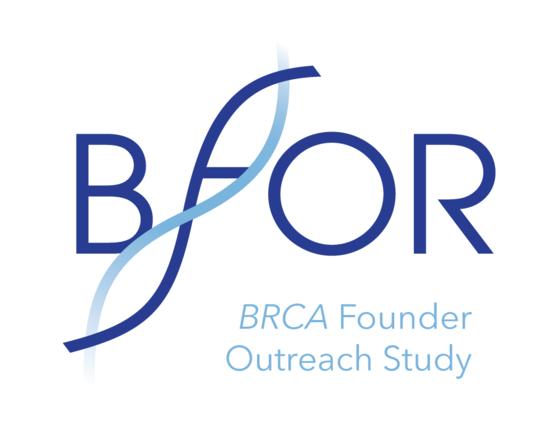
The Basser Center's internationally recognized experts in cancer genetics, Susan Domchek, MD, and Katherine Nathanson, MD, are working in collaboration with leading experts in the fields of cancer research and genetics in New York, Los Angeles and Boston to launch the pilot phase of a new, independent research initiative: the BRCA Founder Outreach (BFOR) Study. Principal Investigators include Dr. Kenneth Offit and Dr. Mark Robson of Memorial Sloan Kettering Cancer Center in New York; Dr. Judy Garber of the Dana Farber Cancer Institute and Dr. Nadine Tung of Beth Israel Deaconess Medical Center in Boston; and Dr. Beth Karlan of Cedars-Sinai Medical Center in Los Angeles.
The study offers BRCA genetic testing at no cost to women and men of Ashkenazi (Eastern European) Jewish ancestry over the age of 25. 95% of American Jews are Ashkenazi and this population is up to ten times more likely than the general population to inherit BRCA mutations. BFOR has the potential to save the lives of those who are at high-risk for carrying a BRCA mutation and who have not been previously identified.
Participants enrolled in the BFOR study will receive pre-test education and informed consent for testing through an online platform. They will then supply a blood sample at a Quest laboratory in their community. Participants can elect to receive their genetic test results through their primary care physician or through a BFOR genetic counselor. Follow-up genetic counseling and/or additional genetic testing may be recommended based on the participant’s test results and family history.
In a recent op-ed for STAT, Basser’s Executive Director Dr. Domchek explained the importance of having a clinician or genetic counselor guide patients through the genetic testing process. “When a BRCA1 or BRCA2 mutation is discovered early, the information can be lifesaving. Women ask me: Should I have my breasts removed and, if so, when? I know I need to have my ovaries removed, but I am worried about menopause, so how long can I wait? When do I tell the man I am dating that I have a BRCA mutation? Men ask me about their risk of prostate cancer. Almost everyone worries about passing the mutation along to their children.” Dr. Domchek also spoke with the Jewish Exponent about the study, which aims to save lives, raise awareness of BRCA mutations, and implement genetic testing within a larger community.
Learn more or enroll at: BFORstudy.com.